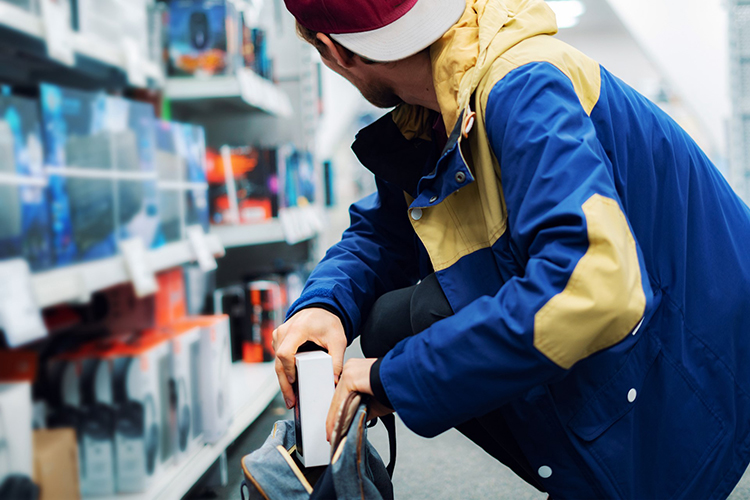Police deploying facial recognition technology to target shoplifters and other retail criminals
Posted on in Business News , Creative News, Outdoor News
“Game-changing” facial recognition technology is targeting prolific retail criminals, including shoplifters.
 Twelve leading firms were approached for a police pilot scheme and asked to provide images of their worst unidentified offenders. Within 60 seconds, the technology generates a match report for an officer – who can determine whether to make an arrest. Of the images supplied, 302 were suitable to use in the scheme and 149 matched shots from the It then creates a template, comparing this to the same biometric template that was created in the custody image database when the person was arrested in the past. Within 60 seconds, from the image being inputted into the system, the technology will generate a match report for a police officer to look at manually before determining whether to make an arrest.
Twelve leading firms were approached for a police pilot scheme and asked to provide images of their worst unidentified offenders. Within 60 seconds, the technology generates a match report for an officer – who can determine whether to make an arrest. Of the images supplied, 302 were suitable to use in the scheme and 149 matched shots from the It then creates a template, comparing this to the same biometric template that was created in the custody image database when the person was arrested in the past. Within 60 seconds, from the image being inputted into the system, the technology will generate a match report for a police officer to look at manually before determining whether to make an arrest.
Images can come from CCTV stills or smartphone footage. The technology is so sophisticated, it managed to find an accurate match from a grainy image where the person pictured was wearing a mask. Ms Chiswick added: “If we didn’t have this, the alternative would be an individual sitting and manually looking and comparing that picture with the other ones, which could take weeks or months.”
Lindsey Chiswick, director of intelligence, said: “From a policing perspective, facial recognition is absolutely game-changing. “We’ve been using it for a while in the post-incidence sense, but it’s only recently in the last year or so that the algorithms have really come along and it’s really accurate now.
“We can use it to point our resource at the most wanted, who have committed the most prolific offending and that ability to prioritise is really key at a time when our resources are spread quite thinly.” Instead of taking into account characteristics such as whether a person is male or female or dark or light-skinned, the biometric tool calculates the individual measurements of people’s faces.
Kyle Gordon, commander frontline policing with responsibility for business and retail crime at the Met said while the force does not have a threshold of the value of items stolen when investigating thefts, he expects the new facial recognition technology to be deployed for the most harmful incidents in shops, such as assaults and hate crime.
This comes on the back of news that shoplifting offences recorded by police forces in England and Wales have risen by a quarter in the past year, according to official figures. The data released by the Office for National Statistics (ONS) last week comes after warnings from major retailers about the rising cost of theft from their stores.
Some 365,164 shoplifting offences were recorded by police in the year to June - up 25% on the previous 12 months.
The figure is 2% above the 359,236 offences in the pre-pandemic year of 2019/20, but not as high as the 375,350 offences in 2018/19.
ONS data shows total police-recorded theft rose by 10% in the year to June 2023, which is still below pre-pandemic levels.
The government has come under increasing pressure to tackle the rise in shoplifting, which has been blamed on the cost-of-living crisis and organised crime.
